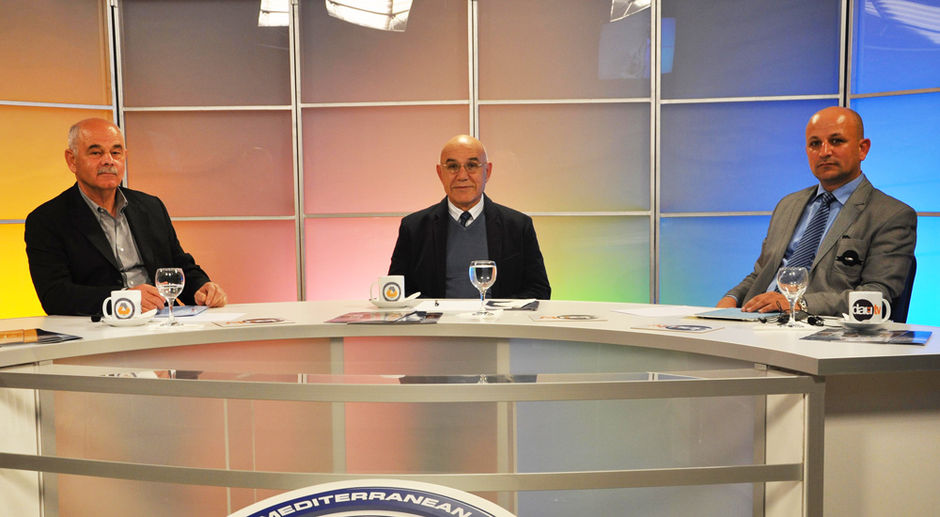Businessman Ali Erel was hosted at the “Economy Table” TV programme under the moderation of Prof. Dr. Salih Katırcıoğlu, Eastern Mediterranean University (EMU) Business and Economics Faculty, Banking and Finance Department Chair and Assoc. Prof. Dr. Bilge Öney, Finance Department academic staff. Activities of the foreign exchange market, political stability and its reflections were discussed during the relevant programme.
In the programme that was held before the Central Bank of Turkey announced its increased interest rates, the first talker was Prof. Dr. Katırcıoğlu and he shared his opinion on the possible decision that can be taken at the extraordinary meeting of the Central Bank of Turkey. Prof. Dr. Katırcıoğlu summarized the recent announcements; and stated that Central Bank announced that its reserve assets have reduced; the inflation expectation for the year 2014 is pulled to 6,6%; a total of 12,308 billion dollars exited the accounts of Turks living abroad from their accounts at the Central Bank of Turkey. Assoc. Prof. Dr. Öney assessed the economic activities and said that speculative movements in the markets always exist. Assoc. Prof. Dr. Öney interpreted the movements in the foreign exchange and said that Turkey is undergoing a change of politics in terms of economics. Assoc. Prof. Dr. Öney also mentioned that Central Bank of America reduced the money it releases to the market and especially countries like Turkey with external deficits are experiencing these movements. Assoc. Prof. Dr. Öney stated that the decision taken by the Central Bank of Turkey Stock Exchange Commission will be significant and economists and markets are expecting approximately 1-1,5 increase in interests.
Businessman Ali Erel shared his opinions on the political stability in Turkey and its reflections on the economy. Erel stated that political stabilities or instabilities play an important role in shaping economic data; and Turkey is experiencing a loss of 35% due to the political incidents and instabilities happening since May. Erel also mentioned that Erdoğan government on its own is giving an economic stability message; while the whole world is experiences crises; in Turkey, the Turkish Lira and the country is experiencing growth. However, Erel explained that, later on, Gezi Park and 17 December incident were not the only causes for political instability and Turkey’s foundations are suitable for such an economic influence. Erel also assessed Turkey’s Prime Minister Erdoğan’s standing and said that the Prime Minister has an ideology that totally rejects increased interests. The frictions between communitarians and imam hatip fans in Turkey reflect that there is a power struggle within the government. Erel emphasized that the regime crisis has turned into a state crisis. Additionally, Erel mentioned that the existence of political influence on the Central Bank of Turkey can only be understood with the decision that will be taken. Erel highlighted that the economy of Turkey is not at an unsustainable stage yet in terms of manufacturing-export; but gave the message that it is going to an unsustainable direction.

